
Agriculture's impact on insect diversity is more severe than previously thought, according to a new study from the Julius-Maximilians-Universität Würzburg.
more
Agriculture's impact on insect diversity is more severe than previously thought, according to a new study from the Julius-Maximilians-Universität Würzburg.
more
Germany’s first quantum physics-themed escape room for young people – “Kitty Q – A Quantum Adventure” hosted by the Cluster of Excellence ct.qmat – is celebrating its first birthday with an even more exciting gameplay experience.
more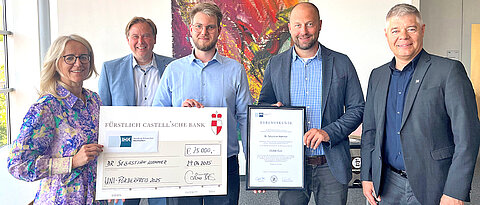
The €25,000 University Sponsorship Award of the Main-Franconian Economy goes to physicist Dr Sebastian Hammer in 2025. The money will go towards a research project that scrutinises high-tech materials.
more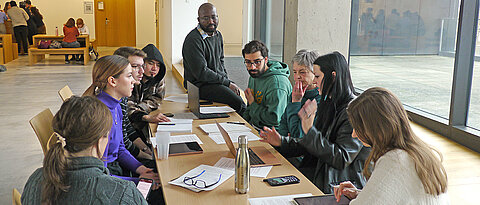
Adult Education and Management in Lifelong Education: this is the name of a new English-language Master's degree programme at the University of Würzburg. There will be an information event on 8 May.
more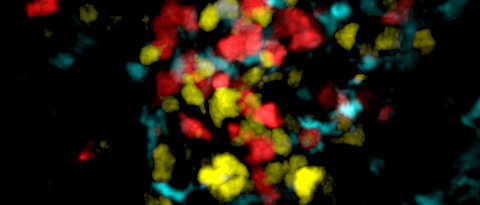
A team from the Max Planck Research Group for Systems Immunology at the University of Würzburg has identified a previously unknown phase of the immune response. These new insights have significant implications for the development of vaccines and cellular immunotherapies.
more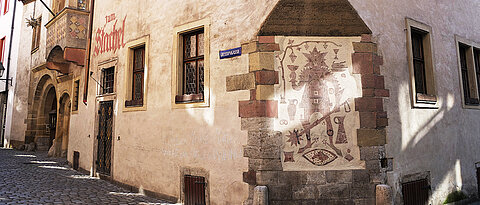
Visualising places and people in the Peasants' War that are hardly or not at all remembered in Würzburg: This is the aim of a history didactics team at the University of Würzburg with a freely accessible app.
more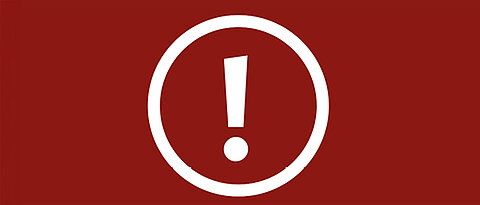
Fake e-mails are currently circulating that claim to come from the University of Würzburg. The recipients are promised jobs at the university. In fact, this is a fraud attempt.
more
A new study shows that climate policy not only has a positive impact on the environment. The defence budget can also benefit from it. One of the authors is the Würzburg economist Joschka Wanner.
more
Würzburg researchers present a new strategy against the life-threatening fungus Aspergillus fumigatus. They combine RNA molecules and an antifungal agent in nanoparticles.
more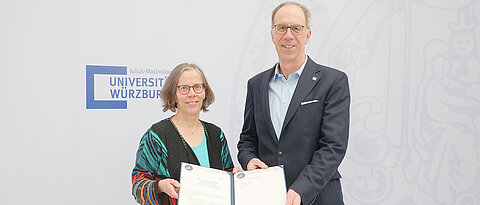
Representatives of the Coimbra Group met in Durham, UK, to mark the 40th anniversary of the university community. They sent out a clear signal in favour of sustainability and against climate change.
more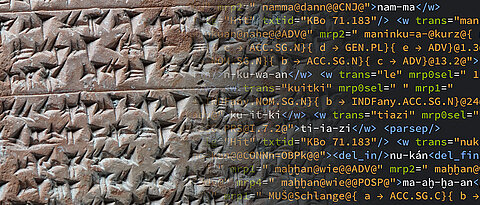
Major milestone reached in digital Cuneiform studies: researchers from Mainz, Marburg, and Würzburg present an innovative tool that offers many new possibilities.
more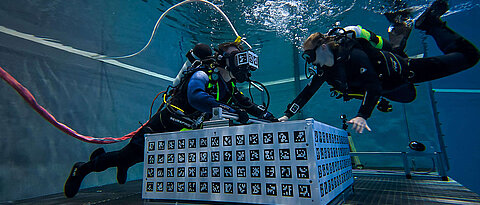
Researchers at the University of Würzburg have developed a headset that astronauts can use to train for various missions. It has now been tested at the European Astronaut Centre in Cologne.
more
Products containing CBD are all the rage, with manufacturers advertising all kinds of positive effects. But do they really exist? A DFG working group led by Würzburg toxicologist Angela Mally has investigated this.
more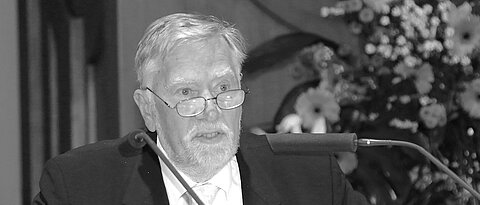
Professor Ekhard Salje was Chairman of the University Council of Julius-Maximilians-Universität Würzburg for many years. The physicist and geoscientist has now passed away at the age of 78.
more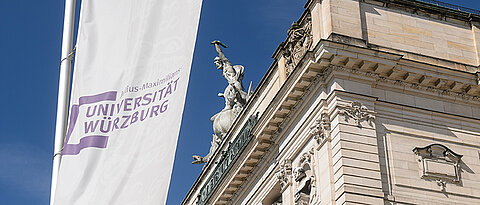
A team of lecturers, staff and students from the Faculty of Physics and Astronomy will receive the University of Würzburg's Gender Equality Prize this year. The award will be presented at the foundation celebration on 12 May 2025.
more